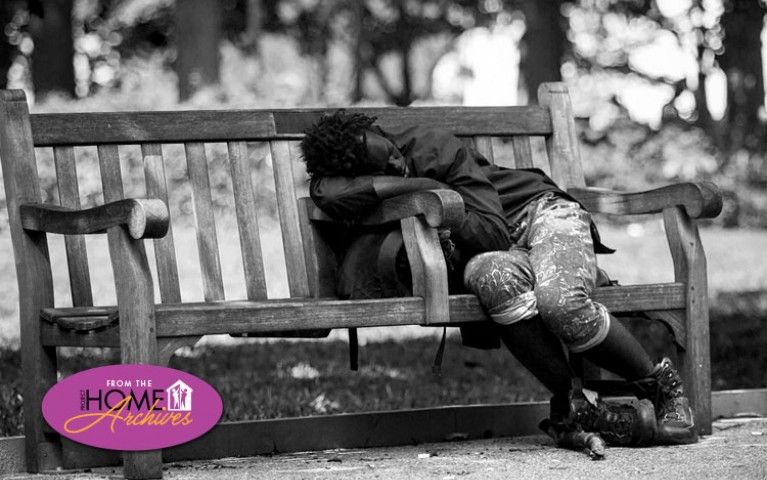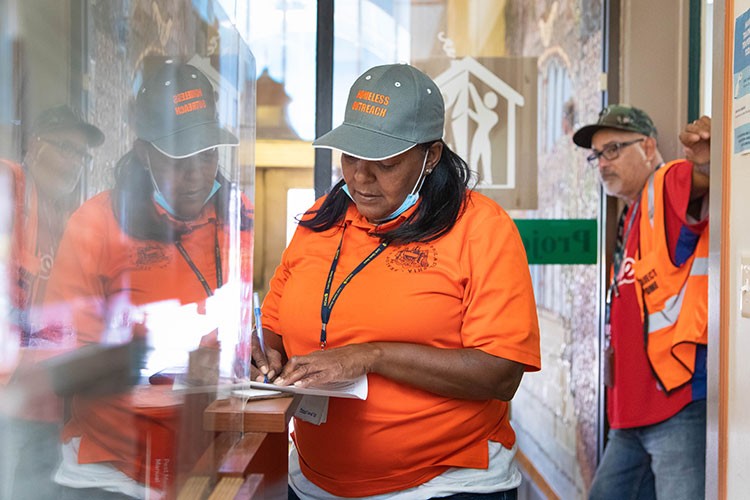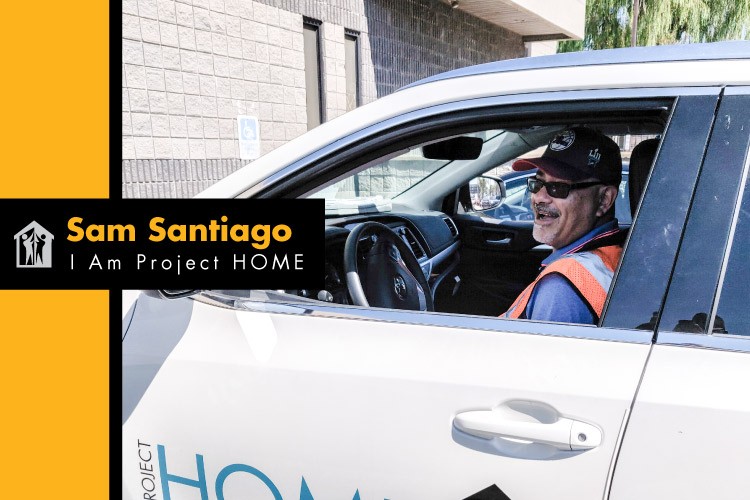From the Archives: Taking It to the Streets

Project HOME continues the celebration of our 30th Anniversary by featuring articles from past newsletters. This article from the February 1993 issue of the Project HOME newsletter describes the history of our Outreach Coordination Center, the daily work of outreach teams and the important role they play in the struggle against homelessness. The nature of the program has evolved since then to meet new challenges, but the mission is still vital and effective.
...
Jerome lives on the grates east of Broad Street in Center City, Philadelphia. A Vietnam veteran who has been diagnosed with Post Traumatic Stress Disorder, Jerome (not his real name) is mired in ten-years of cocaine addiction. On top of that, he has contracted AIDS.Jerome is a familiar figure to Project HOME’s outreach workers. On a regular basis they check on how he is doing and ask if he is willing and able to take a placement for the night or begin some long-term rehabilitation program. And on a regular basis, Jerome is resistant, apprehensive to seek shelter.
Jerome’s addiction and apprehension represent a common challenge to outreach workers who relentlessly approach chronically homeless men and women in Philadelphia. But outreach has nonetheless been an effective bridge for many people on the streets to access services and represents a critical effort in responding to homelessness in our midst.
The Outreach Coordination Center (OCC) was developed in 1988 with funding from the Philadelphia Department of Behavorial Health to address the growing numbers of men and women living on the streets. An innovative program that has received national attention, the OCC represents the first stage of Project HOME’s continuum of care. Each day and night, teams of professional outreach workers from Project HOME and seven partner agencies (Department of Behavioral Health, Horizon House, Mental Health Partnership, Hall Mercer, One Day at a Time (ODAAT), Prevention Point and SELF Inc.) comb Center City to make contact with chronically homeless persons living on the streets. Outreach teams can contact the OCC office to seek placements – if available – for some of the men and women they encounter. The following day, OCC staff with do follow-up, making sure the person they placed the night before has been connected with appropriate services.
On any given night, thousands of people experiencing homelessness in Philadelphia stay in private or city-contracted shelters and residential programs. In addition, hundreds of men and women live continuously on the streets, parks, or doorways. These folks are the most disenfranchised and vulnerable. The vast majority of these men and women struggle with mental health issues, substance use disorder, and severe physical health problems, and few seek appropriate financial or medical assistance. While seeking to refer homeless persons to shelter or social services, outreach workers must persevere, accepting when persons choose to stay outside even in frigid and inclement weather, listening to their fears of living in shelters.
The cornerstone of all outreach efforts is building relationships. Along with countless other struggles, men and women experiencing homelessness often suffer from low self-esteem, profound alienation, and distrust of social service programs. Many have felt dehumanized by the shelter system; many, because of severe mental illness, are unable to access available services. Outreach workers – whether professional social workers, mental health specialists and formerly homeless persons – must break through much distrust and fear. They must humanely offer the first step toward breaking the cycle of homelessness and provide a bridge back to a healing community.
While outreach activities are year-round, the work of OCC intensifies as the weather gets colder and warmer. Each winter and summer, the OCC works with the City of Philadelphia and cooperating agencies to develop and implement a plan – a coordinated effort to save lives during threatening weather. Over the course of a given winter or hot summer, outreach teams will engage perhaps thousands of different individuals, many of whom will accept placements with shelters or safe havens, psychiatric facilities, or detox and substance use disorder programs.Outreach will continue to go out on the streets. They will again see Jerome at his grate, check how he’s doing, chat with him about placements or that first step off the streets. He may be resistant again. Or he may be ready. And they will do the same with hundreds or other men and women on the streets – many familiar faces, and each night new faces. Building relationships, establishing trust, offering access to services.
If you see someone on the streets who you believe needs help, please call our 24-hour Homeless Outreach Hotline, 215-232-1984. Also, you can download copies of our “Where to Turn” guide here and give them to people you encounter on the streets.

